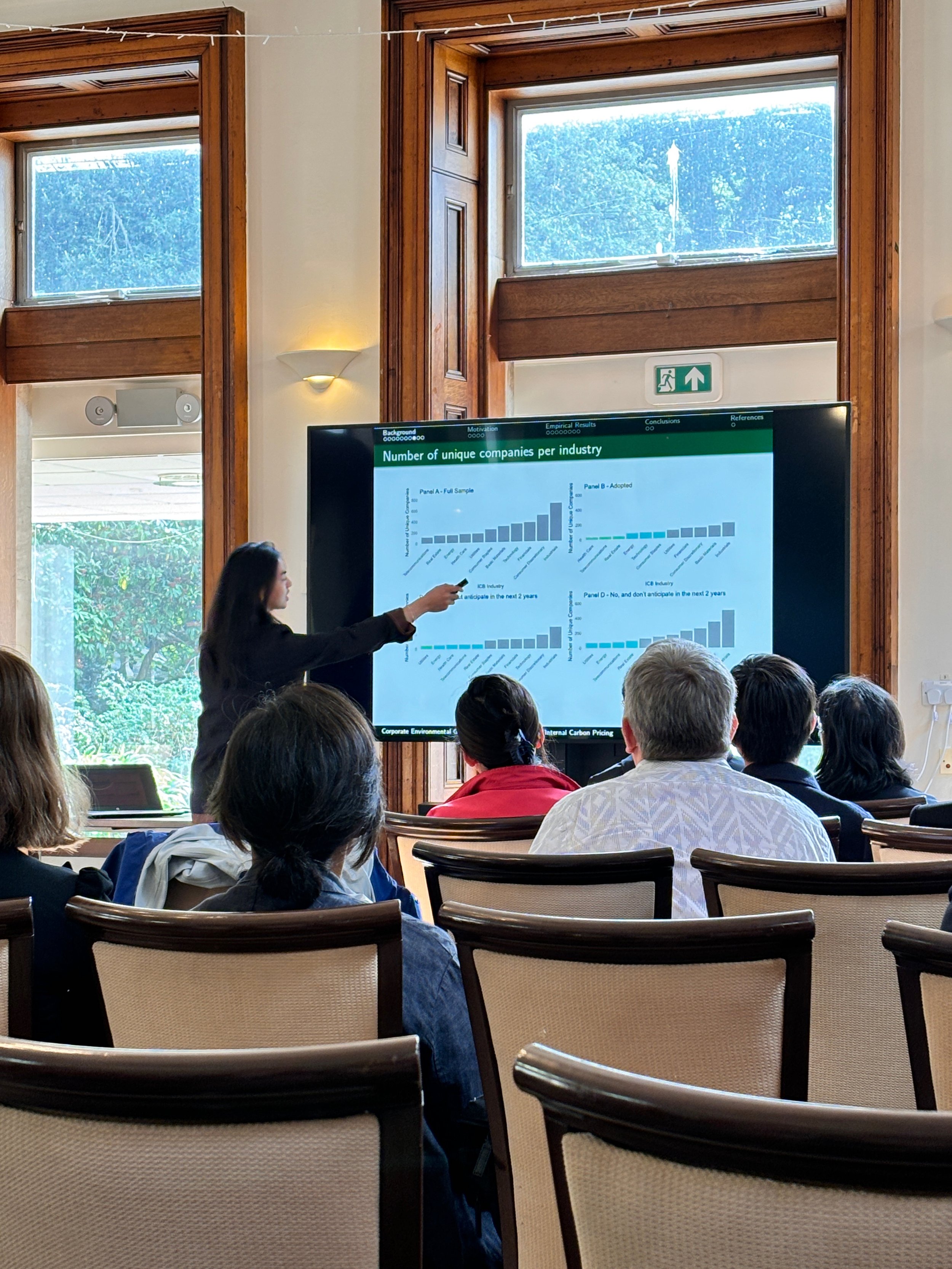About Me
Dr. Chenyan Lyu
Welcome to my website.
I am a Research Fellow at Department of Finance and Accounting, University of Exeter, the United Kingdom.
I am on the 2025/2026 Job Market
I started out among trees. Studying forestry and agriculture, I saw forests not just as ecosystems, but as powerful carbon sinks and sources of clean energy. That’s where the question began:
How do we bring these climate solutions to market, fast enough to matter?
To find answers, I stepped into the world of finance and economics - exploring how markets move money, how policy shapes incentives, and how the two can work together for our planet.
My path took me from China’s first carbon market pilots to global emission trading schemes, and from market design to the fine-grained world of internal carbon pricing inside companies. What began in a forest has grown into a research journey across continents, policies, and boardrooms - all driven by the same goal:
Turning climate ambition into measurable impact.
In the field of Environmental & Energy Economics and Sustainable Finance, Chenyan’s research primarily gravitating towards emission-trading market design, policy analysis, and sustainable corporate finance. Recognizing the urgency of climate change, she emphasizes the significance of cost-effective mitigation strategies, such as carbon pricing. Her current studies delve into the intricate external and internal carbon pricing mechanisms and their implications.
As industries transition towards more sustainable practices, Chenyan is keenly interested in exploring the realm of sustainable investment. She's currently probing how internal carbon pricing can influence a company's profitability, indicating the vital intertwining of environmental responsibility and economic viability.
Furthermore, she is intrigued by the potential interplay between the green bond market and the carbon market. Her investigations aim to decipher whether these markets act as complements or substitutes for each other, shedding light on their roles in promoting a greener economy.
Lastly, through in-depth, spatial and quantitative studies, her research also encompasses the local impacts of carbon policy. The possible repercussions, such as cost pass-through and carbon leakage, require critical analysis to minimize adverse human, environmental, and economic consequences stemming from the emissions allowance allocation process.

